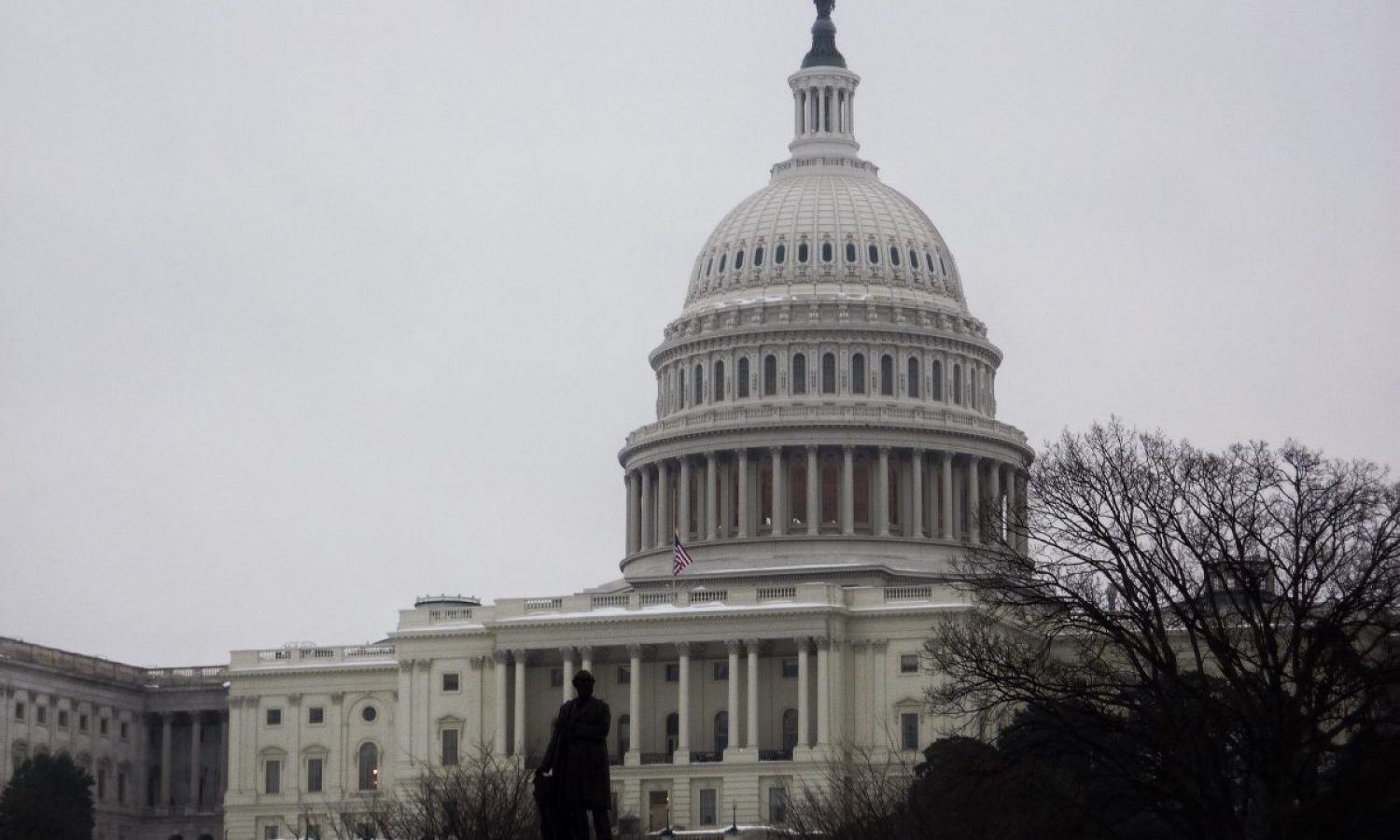i2Coalition February 2023 Legislative Brief
Your brief update on important Internet policy issues
OUTLOOK
President Biden delivered his State of the Union address on February 7 before the closely-divided 118th Congress asserting that his policy agenda is producing positive results for the American people, including progress in fighting off inflation and recession threats. The President touted his administration’s successes in leading the country out of the pandemic crisis with resilience. Going forward, Biden’s theme is “we need to finish the job.” On February 20, in a show of continued, steadfast U.S. support, President Biden made a risky and unannounced visit to Ukraine just prior to the first anniversary of the war with Russia, for which he won some notable bipartisan praise. Among the pressing near-term challenges ahead is the need for President Biden to reach agreement with Congress on raising the debt limit so that the U.S. avoids a default later this year and continues to meet its existing financial obligations. Some Republicans, who hold a slim majority in the House of Representatives, are demanding that President Biden agree to spending cuts in exchange for raising the debt ceiling. U.S. Treasury Secretary Janet Yellen has said that she is willing to negotiate with Republicans in Congress over the Biden administration’s budget proposal to be unveiled on March 9, but not as a condition of raising the debt ceiling. She has noted that the United States cannot bargain over whether or not it is going to pay its current bills, and that is simply a fundamental responsibility of the government. House Republican leaders have developed detailed plans to conduct oversight of the Biden administration and have begun to schedule hearings and launch investigations. The Senate, controlled by the Democrats, is continuing to focus on confirmation hearings for administration nominees. Multiple House and Senate Committees, as well as the Biden administration and agencies, added to their immediate workload some major investigations into a tragic freight rail derailment in Ohio on February 3 involving spillage of toxic chemicals into a community, which made front-page headlines for days.
TECH POLICY PRIORITIES
Section 230/Intermediary Liability. Justices across the Supreme Court’s ideological spectrum appeared to be reluctant to issue sweeping rulings on Section 230 liability protection during the February 21 and February 22 oral arguments in Gonzalez v. Google and Twitter v. Taamneh. A number of the Justices seemed unconvinced by the plaintiffs’ arguments in Gonzalez and suggested Congress was better equipped to settle the matter. Justice Ketanji Brown Jackson offered unexpected pushback against that developing consensus. She interpreted Section 230 as applying strictly to hosting and transmission of user content—with organizing, ranking, and display falling outside the law’s purview. Decisions in both cases are expected later, by June 2023.
Federal Privacy. Comprehensive federal consumer data privacy and protection legislation has not been introduced to date in the new 118th Congress. The House Energy & Commerce Subcommittee on Innovation, Data, and Commerce noticed a March 1 hearing on the topic generally, without reference to a specific legislative proposal. In the Senate, a more narrow focus on the issue of children’s online privacy protection seems to be drawing interest and attention so far.
Copyright/IP. The rise of AI technology is fueling a flurry of policy discussions about how intellectual property law principles, among other things, will apply to this new frontier. In a closely watched case, the Copyright Office, after a second legal review, supported in part a copyright registration for a comic book involving the use of AI to create images for the work. The Copyright Office issued a letter on February 21 explaining its determination that a copyright registration could be allowed for the comic book’s text and the “selection and arrangement of images and text,” but not for individual AI-generated images themselves. The Patent and Trademark Office has announced a plan to seek public input on inventorship issues arising from the development of AI.
Antitrust/Competition. The major antitrust legislative debates directed at Big Tech that ultimately stalled in the prior Congress have not restarted in the new 118th Congress. Antitrust activity currently centers around the court system and a number of major lawsuits filed against Big Tech companies by the Department of Justice and the FTC.
Broadband. Congress is continuing negotiations to reauthorize the FCC’s spectrum auction authority. On February 27 the House passed an extension through May 19 to allow talks to continue toward a final agreement on a spectrum package later this year. Senate approval of that extension is also required. The Biden administration continues to promote its rollout of the “Internet For All” broadband funding grant programs for underserved and unserved communities made possible by the American Rescue Plan and the Bipartisan Infrastructure Law. Vice President Harris summarized progress in the broadband programs to date and ongoing goals in a February 27 speech in South Carolina. She reported that the NTIA is on track to announce allocations for the Broadband, Equity, Access, and Deployment (BEAD) program by June 30, 2023. This program is the largest single tranche of funding and will provide nearly $42 billion nationwide. Some controversy has persisted about new FCC broadband maps and the accuracy of coverage data, with key lawmakers asking for more time to allow stakeholders to challenge the accuracy of the National Broadband Map. FCC Chair Jessica Rosenworcel has responded to those Congressional concerns by pointing out that the Broadband DATA Act envisions ongoing challenges to the map and that the FCC is ready to continue to work with all stakeholders to receive feedback and to continue to improve the National Broadband Map over time as a work that is always in progress, just as Congress intended it to be.
Find Out More…
For more in-depth updates on Internet policy, including issues that specifically impact your organization, please contact us about joining the i2Coalition.

